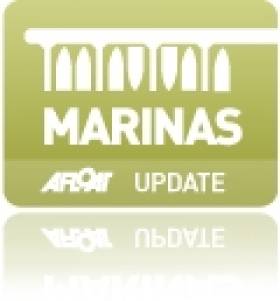Displaying items by tag: BMF
British Marine Federation To Run RCD Awareness Course
Are you involved in boat sales? Are you up to date with the recrecational craft directive (RCD)? The British Marine Federation is to run a newly updated course, which includes all the latest information on requirements for the Recreational Craft Directive at it Surrey premises.
The Course is relevant to: All those with responsibility for the design and construction of recreational craft, for example: directors, managers, designers, consultants and surveyors;
It is also useful to all those involved in boat building who are responsible for the supply of equipment to any new boat, including engine suppliers; DIY builders who wish to CE Mark their own boats and the importers of agents for boats built outside the UK.
More from the BMF here
#bmf – Anyone wanting to have a go at boating can do so for free at Try A Boat Free! Now in its third year in Dartmouth, the event will provide a unique opportunity for visitors of all ages to experience life on the water, all for free!
Organised by the south west region of the British Marine Federation (BMF), Try A Boat Free! will take place on 24-25 May 2014 between 10am and 4pm at the South Embankment, Dartmouth.
With a variety of yachts, RIBs and motorboats available, visitors young and old can experience the complete range of activities on the water. With everything from fast RIBs to stylish powerboats, Try A Boat Free! provides anyone with an interest in boating with the perfect opportunity to learn more and get involved.
Qualified skippers will be on hand throughout the weekend to answer any questions and South Devon College Noss Marine Academy training officers will also be available, offering expert guidance for those looking for careers, apprenticeships or training opportunities within the boating industry.
The Royal Yachting Association (RYA) will also be offering free safety advice and tips, and boat buying advice from co-sponsors for the event, Yachting Lawyers & Boatshed Dartmouth, will also be available. Event sponsor Ribeye will have a variety of RIBs available ashore and on the water and there will be the chance to win a Ribeye tender on Palm FM 105.5.
In order to mark national watersports month, the 2014 event will be held in association with the RYA Push the Boat Out campaign. RYA Dinghy Sailing taster certificates will be awarded to those who take to the water.
Last year, over 550 visitors took to the water and the BMF hopes to improve on that figure again for this year's event.
Marina Manager Course Held in Dublin
As part of the course the group developed a marina scheme for Clontarf Yacht and Boat Club.
By basing the course in Ireland delegates were able to experience at first hand Irish facilities, some for the first time. Sarah Dhandar, Director of Training at the BMF expressed her delight at the venue, "superb facilities, conveniently close by".
































































